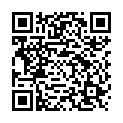|
|
|
| Module code: FT30 |
|
|
4V (4 hours per week) |
|
7 |
| Semester: 6 |
| Mandatory course: yes |
Language of instruction:
English |
Assessment:
Technical report and presentations in English 15-30 min.
Weighting: Project 5, Technical Reports and Presentations in English 2
[updated 30.09.2020]
|
FT30 (P242-0023, P242-0024, P242-0078) Automotive Engineering, Bachelor, ASPO 01.10.2011
, semester 6, mandatory course
FT30 (P242-0023, P242-0024, P242-0078) Automotive Engineering, Bachelor, ASPO 01.10.2015
, semester 6, mandatory course
FT30 (P242-0023, P242-0024, P242-0078) Automotive Engineering, Bachelor, ASPO 01.04.2016
, semester 6, mandatory course
FT30 (P242-0023, P242-0024, P242-0078) Automotive Engineering, Bachelor, ASPO 01.10.2019
, semester 6, mandatory course
Suitable for exchange students (learning agreement)
|
60 class hours (= 45 clock hours) over a 15-week period.
The total student study time is 210 hours (equivalent to 7 ECTS credits).
There are therefore 165 hours available for class preparation and follow-up work and exam preparation.
|
Recommended prerequisites (modules):
FT03
FT04.1 Introduction to Automotive Engineering
FT04.2 Engineering Drawing
FT04.3 Engineering Mechanics I
FT04.4 Material Science
FT07
FT13
FT15 Engineering Mathematics III
FT23 Business Economics
FT24.2 Data Communication
FT26.1 Project Work 1
[updated 24.01.2016]
|
Recommended as prerequisite for:
FT32 Bachelor Thesis
[updated 17.07.2015]
|
Module coordinator:
Studienleitung |
Lecturer:
Professor/innen des Studiengangs
[updated 24.01.2016]
|
Learning outcomes:
TL - Project:
This course provides students with the technical and management skills needed to successfully complete an engineering project in English.
After successfully completing this module, students will be able to:
- understand the technical definition of the project
- derive related objectives
- work efficiently in a team
- apply the knowledge of FT26.1 - TL Project Management and to provide a related project plan (time schedule)
- execute the project plan
- control the project progress with respect to the project plan
- develop and initiate corrective actions if needed
TL - Technical Reports and Presentations in English:
This course provides students with the language skills needed to successfully complete an engineering project in English.
After successfully completing this module, students will be able to:
- understand technical reports and scientific articles relevant to the respective projects
- apply the basic elements of academic/technical writing in their own writing
- present project outcomes in an oral group presentation
- document project outcomes in a written report
[updated 30.09.2020]
|
Module content:
TL - Project:
Students are required to select and refine a technical topic of their work which is originally given by the tutors.
They have to:
- select a topic
- build a project team
- create a list of tasks and define owners
- create a time schedule including the tasks and owners
- work on the tasks based on the time schedule
- handle upcoming problems in terms of technical aspects as well as their potential impacts on the time schedule
Projects outside the htw saar with the automotive industry or its component suppliers are possible but must be aligned with the tutors of the course.
TL - Technical Reports and Presentations in English:
As the course Technical Reports and Presentations in English forms an integral part of the module FT 30 Engineering Project in English, students are required to attend the English course and complete the engineering project simultaneously.
The contents of this course are closely related to the different projects in the field of automotive engineering that students work on in the course of the semester. They include in particular:
- strategies to acquire new technical vocabulary relevant to the respective project topics
- working with technical texts from the field of automotive engineering
- dealing with secondary literature
- presentations on different topics from the automotive industry
- preparing and giving technical presentations
- introduction to writing technical texts (structure, writing strategies, style of writing)
- writing a project report
[updated 30.09.2020]
|
Teaching methods/Media:
TL - Project:
- Topic and goal related
TL - Technical Reports and Presentations in English:
During this communicative language course, the four basic language skills (listening comprehension, reading comprehension, oral and written expression) will be trained in an integrated way with a particular focus on written and oral expression. To reach the learning objectives, different teaching/learning methods will be applied: class work, pair work, group work, (guided) self-study periods, peer review, etc. Students will also have the opportunity to receive feedback on their work in progress as well as practise giving presentations in class.
Students will be provided with various types of learning and self-study materials (print, audio, video and m&e-learning materials) specially developed or adapted for this course.
[updated 30.09.2020]
|
Recommended or required reading:
- C. Sick: TechnoPlus Englisch VocabApp. EUROKEY.
- C. Sick, unter Mitarbeit von Miriam Lange: TechnoPlus Englisch 2.0. Ein multimediales Sprachlernprogramm für Technisches Englisch und Business English. EUROKEY.
- C. Sick, unter Mitarbeit von L. Rauhoff und M. Wedig (seit 2016): Online Extensions zu TechnoPlus Englisch, EUROKEY.
- M. Ibbotson: Professional English in Use: Engineering. Technical English for Professionals. CUP.
- B. Rosenberg: Spring into Technical Writing for Engineers and Scientists. Addison-Wesley.
- C. Sowton: 50 Steps to Improving Your Academic Writing. Garnet Education.
- E. de Chazal, S. McCarter: Oxford EAP. A Course in English for Academic Purposes. Oxford.
- D. Beer, D. McMurrey: A Guide to Writing as an Engineer. Wiley.
- R. Murphy: English Grammar in Use. A self-study reference and practise book for intermediate students. OUP. (mit CD-ROM).
- PONS Großwörterbuch für Experten und Universität. PONS.
- Macmillan English Dictionary for Advanced Learners (mit CD-ROM). Macmillan.
- Topic and goal related technical papers
[updated 30.09.2020]
|


